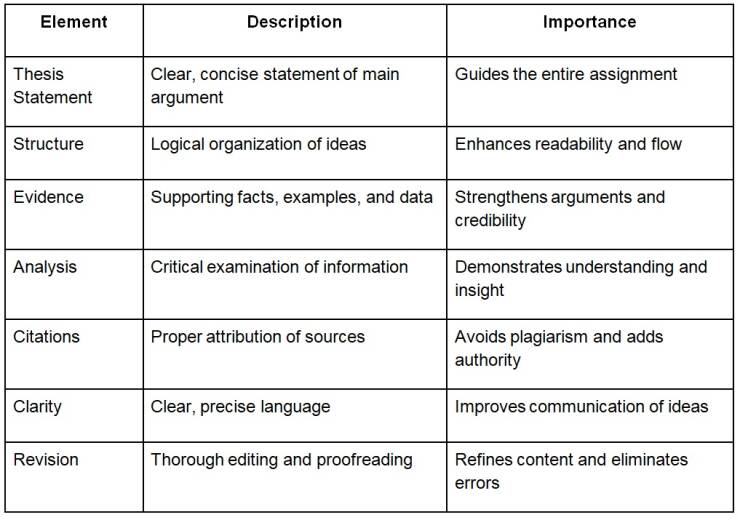
Revising and Editing
Revising your assignment writing is the next important step. If at all possible, let your first draft sit for a day before you begin refining it. Thanks to the break, your eyes will be refreshed and you’ll be less likely to get caught up in small errors that otherwise would be easy to miss.
The second round of revisions should focus on the overall structure and content: Are your paragraphs and arguments clear and logical? Are the connections between them smooth? Is there any opportunity to provide additional support for your thesis or evidence to back up your claims?
Once you are happy with your content and structure, then you move on to the editing stage which involves fine-tuning your language/grammar/punctuation. Read your work aloud – examine sentence structure and word choice, cultivate clarity in your language and recall.
Proofreading for Perfection
The final stage of bettering your assignment-writing skills is by proofreading your piece for any lingering errors in spelling, grammar, punctuation or layout. After all, proofreading is a great form of improvement, particularly if you do it in stages by looking at the layout one time, spelling another time, and grammar and punctuation yet another time.
Ask a classmate, friend or relative to read your assignment, too. Sometimes a new set of eyes can pick up on mistakes or places of confusion that you missed. And if your school offers writing center services, take advantage of those for additional feedback and support.
Seeking Feedback and Continuous Improvement
Students should seek feedback from their instructors and peers to further their ability to write at the level of good assignments. Take to heart what you are told, and seek improvement. Think about comments and suggestions made on your assignments and work to implement them in future assignments.
For example, you might keep a writing journal in which you reflect on the process of writing – what worked, what difficulties, and what strategies you’ve developed for mastering different research activities. Self-reflection can be a useful way to assess and improve your academic writing. It can help you reflect on strategies that have led to success or persistently challenged you. It can help you identify patterns of avoidance in your writing process. It can also help you monitor and measure your progress over time.
Time Management and Planning
Good time management is a critical element of adequate assignment writing. Work on assignments as soon as possible after they have been assigned, not at the last minute. Break your work down into smaller parts and set deadlines for those parts from getting started on research to outlining to writing to revision.
Writing allows for adequate time to complete each task, and remember your other obligations, too. There is potentially a way for you to conceive of a time-management system that could work. That way you won’t be up at 2am stressed and tired, writing a paper and submitting it without revised proofs.
Expanding Your Vocabulary and Reading
Writing for assignment can be aided by broadening one’s vocabulary and reading widely. Get yourself a new word every day and put it in context when you can. But don’t sacrifice clarity for complexity.
Read journals, books, articles in your field. Not only does this expand your knowledge but it also exposes you to more writing and academic conventions. Take note of how experienced writers structure their arguments, and how they provide information to their readers.
Embracing Technology and Tools
Utilize available technology and tools to help you improve. Word processing software often includes grammar and spell-check features that are useful for picking up relatively obvious errors. More sophisticated tools such as Grammarly, Hemingway Editor and the like offer further suggestions and recommendations to help you improve your writing style and clarity.
Tools such as Zotero or Mendeley are available to manage these sources, and to create citations in more or less the required style. Many institutions provide these tools for free, and investing time upfront to learn how to use them can save you time and effort, and mitigate errors in your bibliography or reference list.
Conclusion
One way to improve assignment writing is simply to keep doing it, being diligent and reflective, and continuing to adapt. If you can grasp what is being asked of you as far as assignment requirements go, undertake appropriate, detailed and reliable research, make an effective argument in support of your topic, pay attention to the structure and clarity of what you are writing, check it over and revise it carefully, ask someone else to provide feedback on that final draft, and keep doing other writing assignments with a view to becoming more confident and aware of your grammar, style and presentation as you go, you will be well on your way to producing far higher quality work than before. Gradually, your engagement with the subject will become more incisive and better written, which has to be a win-win situation in terms of your academic performance and your engagement with the course of study.